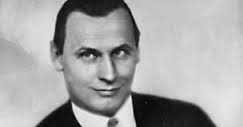
Fritz Heinrich Rasp was a German film actor who appeared in more than 100 films between 1916 and 1976. His obituary in Der Spiegel described Rasp as "the German film villain in service, for over 60 years."

The Model Boy is a 1963 Austrian comedy film directed by Werner Jacobs and starring Peter Alexander, Cornelia Froboess and Gunther Philipp.

The Girl with the Whip is a 1929 German silent comedy film directed by Carl Lamac and starring Anny Ondra, Werner Fuetterer and Sig Arno. It was shot at the Johannisthal Studios in Berlin. The film's art direction was by Heinrich Richter. It was based on a play by Hans H. Zerlett.

Suburban Cabaret is a 1935 Austrian musical drama film directed by Werner Hochbaum and starring Mathias Wieman, Luise Ullrich and Oskar Sima. It was shot at the Sievering Studios in Vienna. The film's sets were designed by the art director Alfred Kunz. It is based on the play Der Gemeine by Felix Salten.
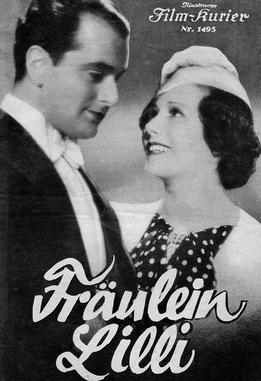
Fräulein Lilli or Miss Lilli is a 1936 Austrian comedy film directed by Hans Behrendt, Robert Wohlmuth and Max Neufeld. It starred Franciska Gaal, Hans Jaray and S.Z. Sakall. It was Gaal's last European film, although she did briefly start work in 1946 on Renee XIV, before it was abandoned during filming.

The Gasman is a 1941 German comedy film directed by Carl Froelich and starring Heinz Rühmann, Anny Ondra and Walter Steinbeck. It was shot at the Tempelhof Studios in Berlin and premiered in the city's Gloria-Palast. The film's sets were designed by Walter Haag. It was made by Froelich's separate production unit, and distributed by the major studio UFA.

Fairground People is a 1930 German comedy film directed by Carl Lamac and starring Anny Ondra, Sig Arno and Margarete Kupfer. The film was made shortly after the sound revolution, which had damaged Ondra's career in British films and led her to return to Germany. It showcased Ondra's talents as a musical comedy star who sings and dances. Ondra's character dresses up as Mickey Mouse for her performances, and the film was known by the alternative title of Mickey Mouse Girl.

Polish Blood is a 1934 musical film directed by Carl Lamac and starring Anny Ondra, Hans Moser and Iván Petrovich. It is an operetta film, based on a work by the Polish-born writer Leo Stein. The film's sets were designed by art directors Bohumil Hes and Stepán Kopecký. A separate Czech language version was also released.
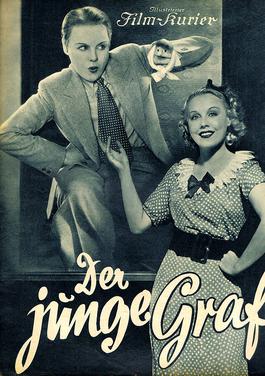
The Young Count is a 1935 Czech-German comedy film directed by Carl Lamac and starring Anny Ondra, Hans Söhnker and Fritz Odemar. It is set around the circus, part of a subgenre of Circus films. It was shot at the Tempelhof Studios in Berlin. The film's sets were designed by the art directors Wilhelm Depenau and Erich Zander.

Knockout is a 1935 German sports film directed by Carl Lamac and Hans H. Zerlett and starring Anny Ondra, Max Schmeling, and Hans Schönrath. After impressing a boxing trainer during a brawl over a woman, a young man is recruited and trained to be a boxer. He fights and defeats the British champion.
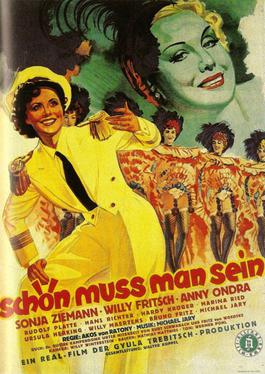
You Have to Be Beautiful is a 1951 German musical comedy film directed by Ákos Ráthonyi and starring Sonja Ziemann, Willy Fritsch and Anny Ondra. The film's sets were designed by art director Mathias Matthies. It was Ondra's final film apart from a brief cameo role in The Affairs of Julie.
Look After Your Daughters is a 1922 Austrian silent comedy film directed by Sidney M. Goldin and starring Franz Höbling, Anny Ondra and Carl Lamac.

The Love Hotel is a 1933 German comedy film directed by Carl Lamac and starring Anny Ondra, Mathias Wieman and Peter Voß. It was shot at the Bavaria Studios in Munich. The film's sets were designed by the art directors Wilhelm Depenau and Erich Zander. A separate French-language version was also made.

Little Dorrit is a 1934 German drama film directed by Karel Lamač and starring Gustav Waldau, Anny Ondra, and Hilde Hildebrand. It is an adaptation of Charles Dickens' 1857 Victorian era novel Little Dorrit, and made a sharp contrast to the light comedies and musicals that Ondra usually appeared in. The film's sets were designed by the art directors Wilhelm Depenau and Erich Zander.
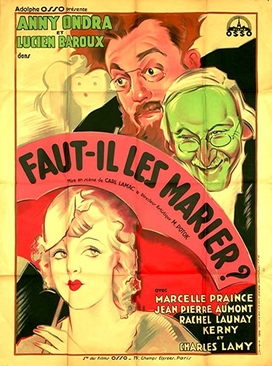
Should We Wed Them? is a 1932 French comedy film directed by Pierre Billon and Carl Lamac and starring Anny Ondra, Lucien Baroux and Marcelle Praince. The film's sets were designed by the art directors Otto Erdmann and Hans Sohnle. It is the French-language version of the Austrian film The Cruel Mistress.
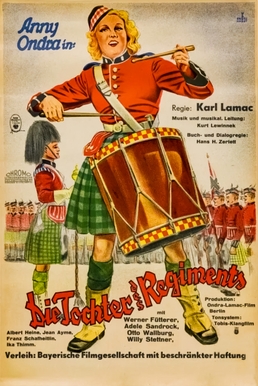
Daughter of the Regiment is a 1933 Austrian-German comedy film directed by Carl Lamac and starring Anny Ondra, Werner Fuetterer and Adele Sandrock. It is loosely based on the 1840 opera La fille du regiment by Gaetano Donizetti, with the setting updated from the Napoleonic to the First World War. A separate French-language version was also released, with Ondra reprising her role.

Hannerl and Her Lovers is a 1936 Austrian comedy film directed by Werner Hochbaum and starring Olly von Flint, Albrecht Schoenhals and Hans Moser. It was based on a novel that had previously been adapted as a 1921 silent film of the same title.
Gypsy Love is a 1922 Austrian silent film directed by Thomas E. Walsh and starring Anny Ondra and Albert von Kersten.
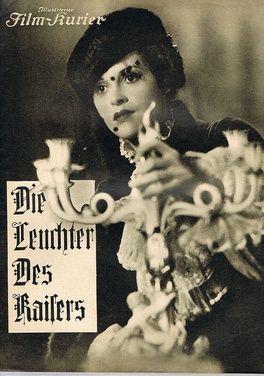
The Emperor's Candlesticks is a 1936 Austrian historical adventure film directed by Karl Hartl and starring Sybille Schmitz, Karl Ludwig Diehl and Friedl Czepa. It is an adaptation of Baroness Orczy's 1899 novel The Emperor's Candlesticks. A Hollywood film version of the story The Emperor's Candlesticks was released the following year.

The Unexcused Hour is a 1937 Austrian comedy film directed by E.W. Emo and starring Anton Edthofer, Hans Moser and Dagny Servaes. It was shot at the Sievering Studios in Vienna. The film's sets were designed by the art director Fritz Maurischat. It was remade as a 1957 film of the same title directed by Willi Forst.


















